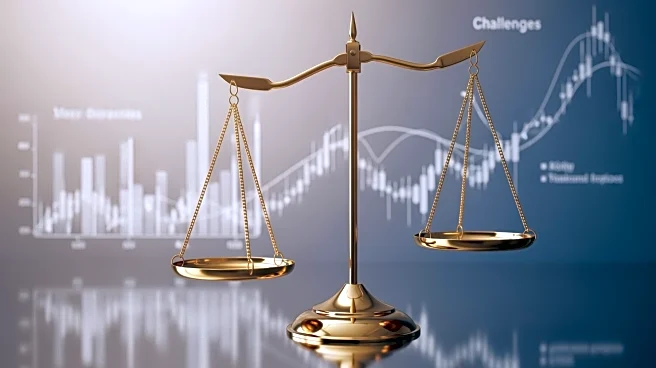What's Happening?
The Central Bank of the Russian Federation has reduced its key interest rate by 0.5 percentage points to 16.5% in an effort to support the country's struggling economy. This decision follows the imposition of U.S. sanctions on major Russian oil companies,
Rosneft and Lukoil, which significantly contribute to Russia's GDP. The bank also revised its economic growth forecast for 2025, lowering it to between 0.5% and 1%, down from the previous estimate of 1% to 2%. Despite the rate cut, the bank anticipates inflation to rise to between 4% and 5% next year, driven by geopolitical tensions, tax hikes, and trade disruptions.
Why It's Important?
The interest rate cut by Russia's central bank highlights the severe economic challenges the country faces due to international sanctions and internal pressures. The sanctions, particularly on the oil sector, are a significant blow to Russia's economy, which heavily relies on energy exports. The move to lower interest rates aims to stimulate economic activity but also risks exacerbating inflation. This situation presents a complex economic landscape for Russia, with potential implications for global energy markets and geopolitical stability, especially in light of ongoing tensions with Ukraine and Western countries.
What's Next?
The central bank's decision may lead to further economic adjustments as Russia navigates the dual challenges of sanctions and inflation. The international community, particularly Western nations, will likely monitor Russia's economic policies closely, as these could influence global energy prices and geopolitical dynamics. Additionally, Russia may seek to strengthen economic ties with non-Western countries to mitigate the impact of sanctions. The effectiveness of these strategies will be crucial in determining Russia's economic resilience in the coming years.















